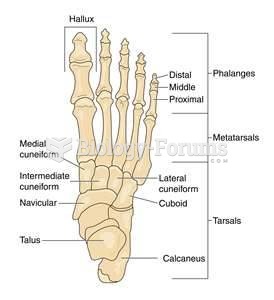|
|
|
Did you know?
People about to have surgery must tell their health care providers about all supplements they take.
Did you know?
There are 20 feet of blood vessels in each square inch of human skin.
Did you know?
Illicit drug use costs the United States approximately $181 billion every year.
Did you know?
If all the neurons in the human body were lined up, they would stretch more than 600 miles.
Did you know?
Vital signs (blood pressure, temperature, pulse rate, respiration rate) should be taken before any drug administration. Patients should be informed not to use tobacco or caffeine at least 30 minutes before their appointment.







